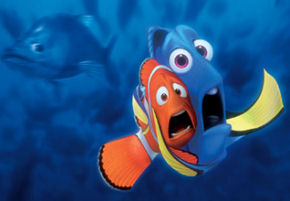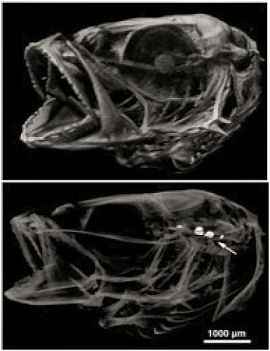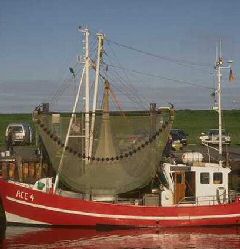
Rising oceanic carbon dioxide (CO2) levels are disrupting a key brain receptor in fish, causing dramatic changes in their brain chemistry, behavior and sensory abilities, say Australian researchers from the ARC Centre of Excellence for Coral Reef Studies. Their work appears in the journal Nature Climate Change.
Around 2.3 billion tons of human CO2emissions dissolve into the world’s oceans every year, causing significant changes to the chemical makeup of the water. It was previously established that dissolved CO2 was affecting calcification in shellfish but this is the first time that CO2 has been shown to affect fish. “We’ve now established it isn’t simply the acidification of the oceans that is causing disruption – as is the case with shellfish and plankton with chalky skeletons – but the actual dissolved CO2 itself is damaging the fishes’ nervous systems… a direct and previously unknown threat which is likely to impair their chances of survival,” explained researcher Philip Munday.
Munday began by studying how baby clown and damsel fishes performed alongside their predators in CO2-enriched water. He found that while the predators were somewhat affected, the baby fish suffered much higher rates of attrition. “Our early work showed that the sense of smell of baby fish was harmed by higher CO2 in the water – meaning they found it harder to locate a reef to settle on or detect the warning smell of a predator fish,” he noted.
Also affected was the fishes’ sense of hearing, which they use to locate reefs. “They were confused and no longer avoided reef sounds during the day. Being attracted to reefs during daylight would make them easy meat for predators,” said Munday. Additional experiments showed the fish also tended to lose their natural instinct to turn left or right – an important factor in schooling behavior which also makes them more vulnerable, as lone fish are easy prey.
While most animals with brains have GABA-A receptors, the team considers the effects of elevated CO2 are likely to be most felt by those living in water, as they have lower blood CO2 levels normally. They add that the main impact is likely to be felt by some crustaceans and by most fishes. The work shows that fish with high oxygen consumption are likely to be most affected, suggesting the effects of high CO2 may impair some species worse than others – possibly including species targeted by the world’s fishing industries.
Related:
Discuss this article in our forum
CO2 “inertia” makes significant climatic disruption inevitable
Ocean acidification speeding up
Shrinking critters could derail planet’s ecosystems


















Comments are closed.